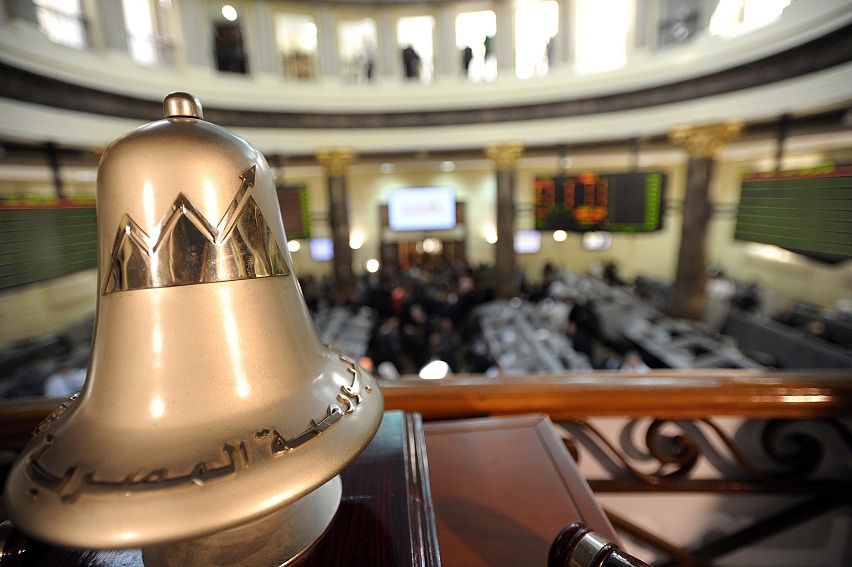CAIRO: An inquest is under way in the UK into the death of Ashraf Marwan, son-in-law of Gamal Abdel Nasser, the Egyptian man variously described as a “billionaire arms dealer,” an “Israeli spy,” a “double agent loyal to Egypt.”
The inquest comes three years after Marwan, then 63, fell to his death from the balcony of his fifth-floor apartment in London’s exclusive West End. At the time his death was thought to be suicide.
The Observer newspaper, a British Sunday paper, gained an exclusive interview with Mona Nasser, Marwan’s widow and one of two daughters of former Egyptian president Gamal Abdel Nasser. In the article, published on Sunday, Nasser says that some days before Marwan’s death “he turned to me and said: ‘My life is in danger. I might be killed. I have a lot of enemies.’ He knew they were coming after him. He was killed by Mossad.”
The risks to his life were no doubt increased by the claim made in a 2002 book by Israeli historian Ahron Bregman that Marwan was a spy who had tipped off Israel about the coming Yom Kippur invasion in 1973.
While the UK’s Daily Mail states that Marwan was Mossad’s top asset in Egypt in the 1970s, The Observer notes, “Both Hosni Mubarak, Egypt’s current president, and the former head of Israeli military intelligence have indicated that Marwan was a double agent feeding misinformation to the Israelis.”
After his death, President Mubarak said Marwan had “carried out patriotic acts which it is not yet time to reveal,” reported the Daily Telegraph, another UK daily. Marwan was decorated by the Egyptian state for his role in the 1973 war. His funeral in Cairo was attended by high-profile mourners, including President Hosni Mubarak’s son, Gamal, the AP reported.
“My husband was a hero who served his country. He only did what was asked of him to perfection,” said Nasser in The Observer.
Haaretz, the Israeli daily, claims that Marwan did in fact tip off the Israelis about the Yom Kippur offensive, and that therefore “it is more likely that he was killed by Egyptian intelligence agents, who wanted to take revenge against him for betraying his homeland.”
The Israeli paper goes on to report that Marwan first made an offer to spy for Israel in 1969 via the Israeli embassy in London. His offer was at first turned down, before an intelligence-gathering agent in the Mossad decided to use him.
Eli Zeira, the Israeli Military Intelligence chief during the 1973 war, began in the 1990s to leak claims to the effect that Marwan had been a double agent feeding Israel false information. However, Haaretz claims, he did so only to try to clear his own name which had been tarnished by the failure of Israeli intelligence to know in advance about the Arab attack.
Marwan “was working on a potentially explosive memoir which was stolen” from his house in London when he died, the Daily Telegraph reports, drawing attention to another intriguing twist in this story.
The family believe he was murdered in order to prevent the details of his memoirs being made public. The recovery of the memoirs could thus provide crucial evidence for determining the cause of his death, the Telegraph report claims.
Nasser has also criticized London’s Metropolitan Police for the conduct of the investigation. “The investigation was extremely negligent. They did not seal the area properly. They did not take fingerprints. They lost the shoes he was wearing when he died. This was all vital information,” said Nasser in The Observer.
After losing Marwan’s shoes, which could have provided evidence of whether he jumped or was thrown, the case was transferred to the Specialist Crime Directorate, where it is still continuing.
The inquest is expected to hear testimony from Nasser, police officers, and former business partners of Marwan.
The aim of the inquest at London’s City of Westminster Coroner’s Court is to establish the facts of the case and the circumstances of his death, rather than to assign blame. The inquest is due to last three days. It seems unlikely that in that time the inquest will be able to disentangle with certainty the web of possibilities surrounding Marwan’s death.
If the claims of Bregman, the historian and friend of Marwan, who was in touch with him until the day before his death, are to be believed, the case may take some time to resolve. “Ashraf Marwan worked for both Israel and Egypt, as well as for the British and Italians. He did so, in my opinion, not entirely for money, nor because of ideology or something else – but simply because he was intrigued by the espionage game. Having said that, when the moment of truth came to decide between Israel and Egypt, he obviously opted for the latter, because at the end of the day, he was an Egyptian and it was there his loyalty lay,” he said in an interview with Haaretz.


